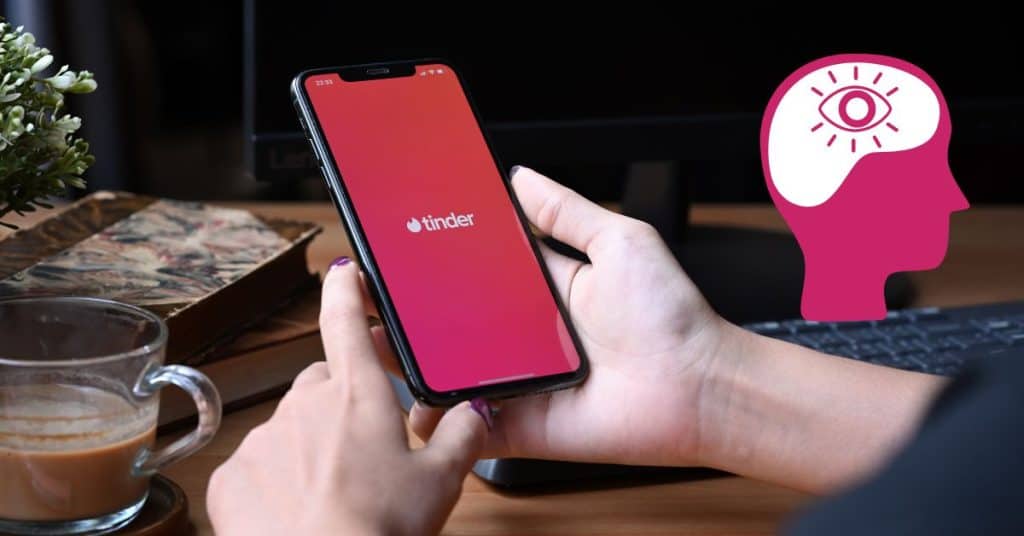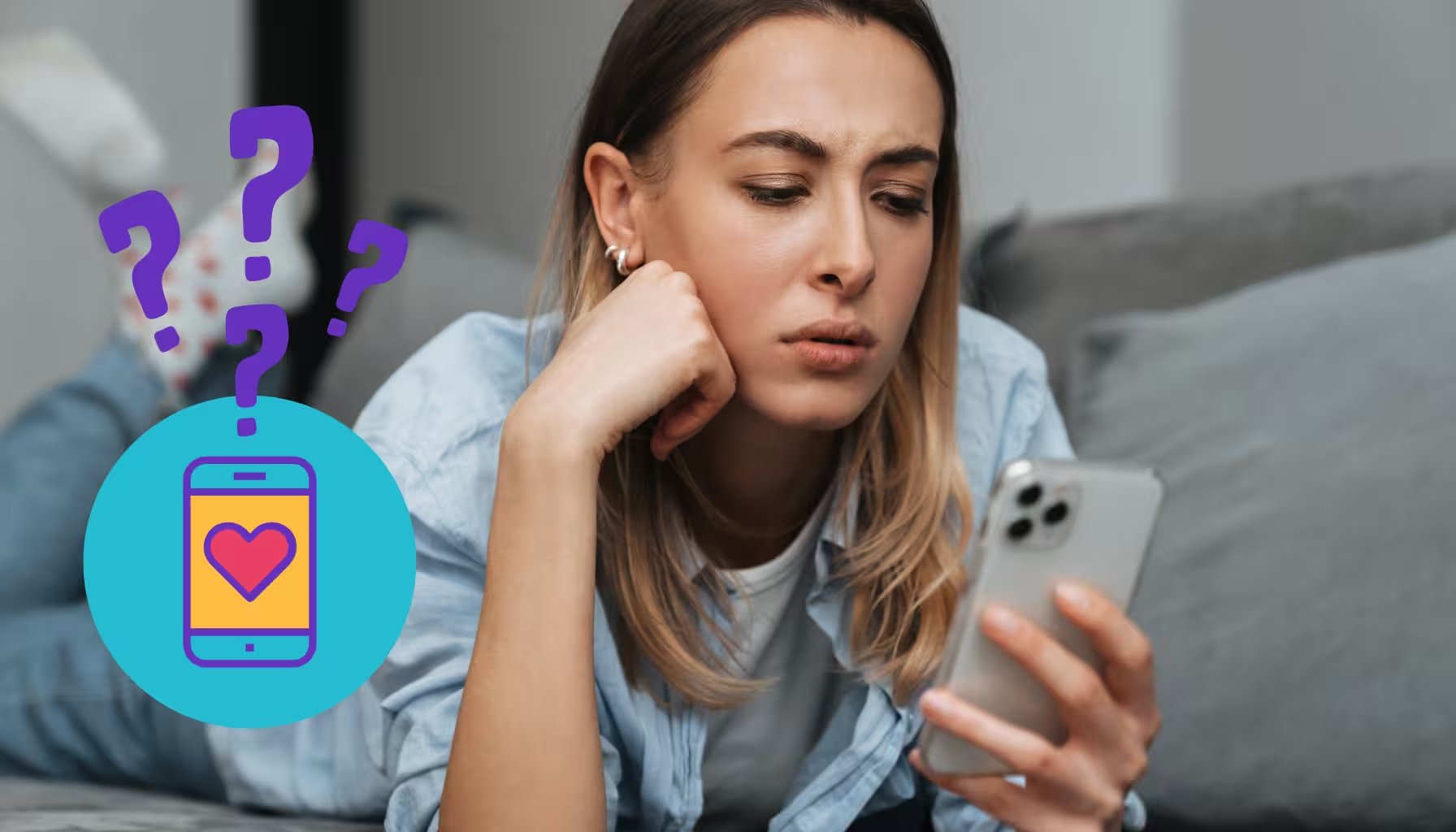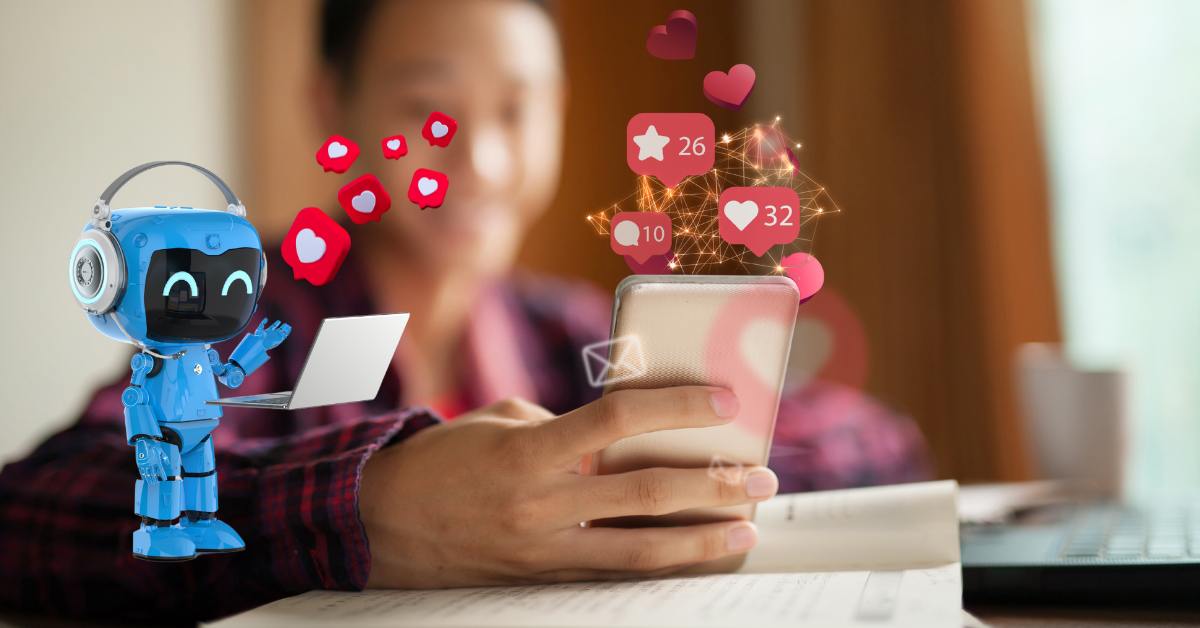Are you guilty of endlessly swiping left and right on dating apps like Tinder, hoping at best to find the perfect match or at worst to fill your spare time? Do you find yourself endlessly scrolling through profiles, swiping away like a squirrel collecting nuts for the winter? Well, my friend, you’re not alone! The addictive appeal of Tinder has captured the hearts and thumbs of millions of users around the world. In fact, the medical community actually has a term for it.
‘Texting thumb’ also known as ‘smartphone thumb,’ is a condition that results from repetitive strain on the thumb due to overuse of mobile phones or other digital devices. The condition is caused by the inflammation of the tendons in the thumb, leading to pain, discomfort, and stiffness in the joint and weakness in the thumb and wrist. It can also cause the development of trigger finger, a condition where the finger gets locked in a bent position and is difficult to straighten. People are literally becoming addicted to swiping at the expense of their own health. It sounds nuts, but it’s true!
But have you ever stopped to wonder why swiping on Tinder is so darn addictive? Is it the instant gratification, the fear of missing out, or something more sinister at play? Fear not, because I’m about to pull back the curtain on why swiping is so attractive and delve deep into the psychology to uncover the science behind Tinder’s addictive appeal. Get ready to unlock the secrets of the swipe.

The Role of Instant Gratification
Ah, yes, the instant gratification of Tinder swiping – it’s like a slot machine for love! Swipe right, and BAM, you get a match! It’s like winning the jackpot, except instead of money, you get the possibility of a date.
But let’s be real; there’s something incredibly satisfying about swiping through potential matches on Tinder. It’s like shopping for love but without the pesky salespeople trying to upsell you on their product.
And once you get that match, oh boy, it’s like a shot of dopamine straight to the brain. You feel on top of the world like you could conquer anything. Suddenly, all of those moments spent staring at your phone screen have been worth it.
But here’s the thing: that rush of pleasure is fleeting. It’s like eating a bag of potato chips–sure, it tastes good at the moment, but soon enough, you’re left feeling empty and unsatisfied. So what do you do? You swipe some more, hoping to recapture that feeling of instant gratification. It’s a vicious cycle, but one that’s hard to break.
Instant gratification is a well-established psychological concept that refers to the immediate satisfaction of a desire or need. The concept has become more common these days due to the advancements in technology and the rise of social media. With the widespread use of smartphones, people now have constant access to a wide range of information, entertainment, and social interaction right at their fingertips.
The rise of on-demand services, such as food delivery apps and streaming services like Netflix, has made it easier for individuals to satisfy their needs and desires almost instantly. This has contributed to the culture of immediate gratification, where individuals expect quick results and instant rewards. And dating apps are no different.
When users swipe right on someone and receive a match, they experience a surge of dopamine, a neurotransmitter associated with reward and pleasure. This dopamine rush activates the reward centers in the brain, particularly the nucleus accumbens, which is involved in the processing of reward-related behavior.
This activation of the reward centers creates a pleasurable sensation that users may seek to replicate by continuing to swipe through more profiles. The resulting cycle of addiction can be explained by the brain’s reward pathway, which reinforces behaviors that lead to positive outcomes. In other words, the more people receive instant feedback, the stronger their desire for more likes and engagement. This can lead to a pattern of compulsive swiping as users continue to seek that instant gratification of receiving a match.
The use of swiping on dating apps like Tinder can also be influenced by the concept of operant conditioning. Operant conditioning involves the modification of behavior through the use of reinforcement or punishment. In the context of Tinder, a match can be seen as a form of positive reinforcement that reinforces the behavior of swiping right.
Research has shown that the combination of instant gratification and operant conditioning can make swiping on Tinder a particularly addictive experience. A study published in the journal Computers in Human Behavior found that the frequency of swiping on Tinder was positively correlated with addictive behaviors, such as impulsivity and sensation seeking.
Understanding these psychological and neurobiological factors can help users approach dating apps in a more intentional and mindful way.

The Impact of Choice Overload
Have you ever spent hours scrolling through Tinder, swiping left and right on what feels like an endless sea of potential matches? It’s like trying to find a needle in a haystack, except the haystack is made up of hundreds of pictures of people trying to look their best. This phenomenon is known as choice overload.
With so many potential matches available on Tinder, users may feel overwhelmed and struggle to make a choice–especially when you remember that Tinder limits the number of (free) swipes you can do in a day. This can lead to decision fatigue, which can make it harder for users to stay engaged with the app over time.
Choice overload refers to the negative effects that can occur when individuals are presented with too many options or choices. On dating apps like Tinder, choice overload can play a significant role in users’ behaviors and motivations. In extreme cases, it can lead to decision paralysis, where users are unable to make any decisions at all.
And the design of Tinder doesn’t help. Users may feel pressure to make quick decisions in order to keep up with the pace of the app, leading to a sense of anxiety and stress. Research has shown that choice overload can have negative effects on mental health and well-being, including increased stress, anxiety, and decision-making difficulties. A study on choice overload published by the website TheDecisionLab investigated how individuals handle the phenomena and found people are likely to make poorer decisions and experience regret.
So, how does this connect? Well, let’s say you’re experiencing the symptoms of this psychological concept without even realizing it, and then ta-da! You get a match. And guess what happens? You get that rush of dopamine, the reward centers of your brain skyrocket, and you find yourself stuck in this cycle, seeking the reward of instant gratification to dull the pain of choice overload.
But here’s the thing–choice overload isn’t just limited to Tinder. It’s a problem we face in all areas of our lives, from choosing what to wear in the morning to deciding which cereal to buy at the grocery store. It’s the paradox of choice–the more options we have, the less satisfied we are with our choices.
So, what’s the solution? One option is to take a break from swiping and come back to it later with fresh eyes. Another is to be more selective in your swiping, focusing on what’s really important to you rather than trying to cast a wide net. And hey, if all else fails, there’s always the option to close your eyes and swipe randomly or hand your phone to a friend and let them take control. Who knows, you might just find your perfect match once you get out of your own way.

The Influence of Social Comparison
You’ve probably experienced it on dating apps like Tinder, that icky feeling, a never-ending game of, “Am I Good Enough?” as you scroll through the profiles of dozens of strangers. Swipe left if they’re not your type, swipe right if they’re hot enough to make you feel like a total catch.
Logically, you know that constantly comparing yourself to others on Tinder is not worth the pain. It’s like a virtual beauty pageant where everyone’s putting their best foot forward and you’re left wondering if you even have a foot to stand on. Suddenly, that selfie you loved makes your nose look giant. So what’s the deal? And how do we dim these thoughts?
Social comparison is a well-known psychological phenomenon that refers to the tendency of individuals to compare themselves to others in order to evaluate their own abilities, traits, and status. On dating apps like Tinder, social comparison can play a major role in how people swipe.
Users may find themselves constantly comparing their own physical appearance, education, or job status to other individuals. This can create feelings of inadequacy, anxiety, and even low self-esteem, particularly if they feel like they don’t measure up to the perceived standards of other users. This can lead to the idealization of the self and the pursuit of an often unattainable version of yourself. You may feel compelled to keep swiping in order to find someone who matches this vision you have of yourself, even if it’s actually unrealistic.
But here’s the thing–social comparison is a trap. There will always be someone out there who seems more attractive, more successful, more interesting than you–but that doesn’t mean you’re not enough. A study published in the journal Cyberpsychology, Behavior, and Social Networking found that frequent social media use was associated with higher levels of depression and anxiety, particularly in young adults. It’s often connected to an inherent need for acceptance or social and personal validation.
Personal validation is a psychological concept that refers to the confirmation or affirmation of an individual’s own self-worth, value, or identity. When users receive matches on Tinder, they feel like they’ve been chosen. It’s a validation of their worth and desirability as a person. But here’s the thing–that feeling of is fleeting. It’s like a sugar rush. Sure, it feels great at the moment, but soon enough, you’re back to feeling the same insecurities and doubts you had before. And that’s where the addiction comes in. People might seek out that feeling of validation by swiping through more profiles, hoping to recapture that high of being chosen. It’s like a never-ending quest for the next hit of self-esteem.
But your sense of self shouldn’t come from external sources like Tinder matches. It should come from within, based on a strong sense of self-worth and confidence. So, next time you find yourself thinking, “oh he will never like someone like me–not when other women look like that,” take a deep breath and remind yourself that you’re unique in your own way.
And if someone doesn’t appreciate that, well, they’re probably not worth your time, anyway. Because behind your profile is a real person, and you know there’s more to you than just your looks.
But here’s the thing–social comparison on Tinder doesn’t have to be all bad. It can be an opportunity for self-reflection and growth. Instead of focusing on what you lack compared to others, why not focus on what makes you different?
I mean, take a page out of my book and post a photo of yourself falling out of a chair. I can’t tell you how many swipes I’ve gotten just because of that one photo. And the comments usually range from: ‘you must have a sense of humor,’ ‘you clearly don’t take yourself too seriously,’ ‘wow–you’re probably fun to hang out with.’ And yes, all of that is true; not ashamed to say it. But I didn’t post that photo to seek validation.
I posted it because I knew it would make me stand out. And I’d rather date someone who can take a joke. I don’t want a guy who expects that I’m going to look like a housewife from Stepford, so I posted a photo that I knew would weed those folks out.

The Struggle of FOMO
If it’s not YOLO, then it’s FOMO. Personally, I think they’re connected because you only live once, so of course you’re going to have a fear of missing out. Believe it or not, FOMO is an actual psychological phenomenon that refers to the anxiety and distress that individuals feel when they perceive that others are experiencing rewarding or enjoyable experiences that they are not. On dating apps like Tinder, FOMO can play a significant role in how people behave.
Users may feel like they’re missing out on potential matches or opportunities if they’re not constantly swiping through the app. This can create a sense of urgency and make the app even more addictive–because God forbid you miss out on the chance to swipe on your future husband.
Research has shown that FOMO can have negative effects on mental health and well-being, including increased stress, anxiety, and depression. A study published in the journal Computers in Human Behavior found that FOMO was positively correlated with problematic social media use, including excessive use and addictive behaviors.
Yeah, it’s partially reflective of an inherent human need for social connection and belonging, of always being in the right place. Swipe left and you might miss out on your soulmate, swipe right and you might miss out on someone even better. But here’s the thing: FOMO is in your head. Have you ever gone through a breakup and cried your eyes out, convinced this was the end of the world and that you’ll never find someone better… And then some time passes, and you do exactly that? And what do you know? This new person is even better than the last! Go figure.
You see, there will always be more potential matches out there, more opportunities to swipe and connect, and the more you do it, the sharper your idea of what you want in a partner becomes. And then you can be even more selective in your choosing. Not because you’re terrified of missing out. But because you know yourself and what you’re looking for.
So, if you do miss out on a potential match or opportunity on Tinder, don’t sweat it. And if it makes you feel any better, just keep in mind that at some point in your life, someone has probably looked at you and thought, man, I want the life that they have.
There you Have it, Friends
It’s a lot to take in, I know, but once you understand the psychology behind why you swipe, then you’ll start to do things a little differently. In order to avoid texting thumb, work on cultivating other hobbies that can give you that same instant gratification as a match.
Fun fact: working out also gives you the same dopamine rush.
And when you’re experiencing dopamine from places other than Tinder, then you’re not going to get overwhelmed by the choice overload. And the more you work on yourself and build up your own self-esteem, the less likely you will compare yourself to others. The happier you are being single, the less likely you will be to seek validation from external sources or compare yourself to other people—or experience that dreadful FOMO.
There will always be more matches and opportunities out there, and the right ones will come along at the right time. In the end, Tinder is just one tool for meeting people–it’s up to us to use it in a way that serves us best rather than being controlled by the fear of missing out. Just let your thumb have a break every once in a while, kay?




